Theodore Papakostas
The big bang of
Greek archaeology
MARCH 22, 2022
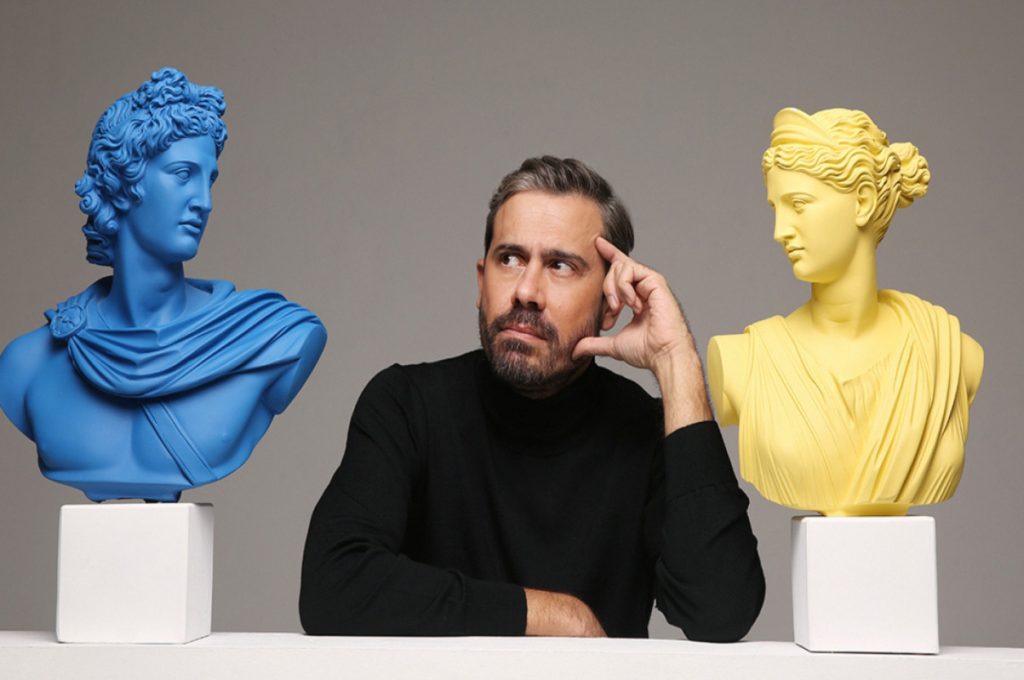
With over 56,000 followers on IG, “Archaeostoryteller”, he is taking over Greek antiquity, in a fierce but comical back to the past performance! His bestselling book, achieves the impossible:
“It fits all of archaeology in the elevator”.
In his podcasts and videos, his phlegmatic humor and passionate personality put his audience inside a time machine that transforms learning into an amusing journey in time.
For me, he is the model archaeologist of GENERATION Z, who supports that exhibits do not belong to museums but the to people and transforms Greek archaeology into a brand !
” The hat belongs in the museum,” says Indiana Jones, but he is an archaeologist in the fictional Marshall College of the 30’s and not in the real world of 2022 like Mr. Papakostas. Let’s start with that in mind.
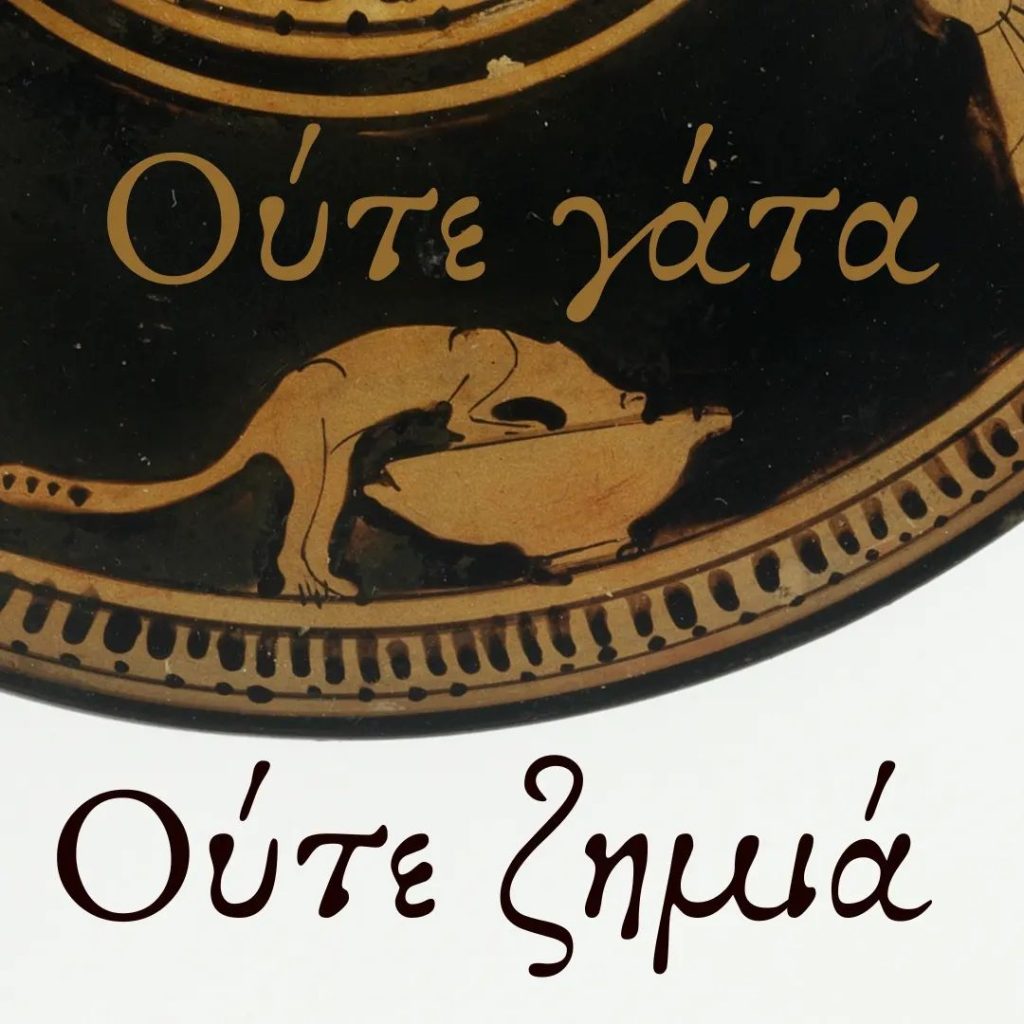
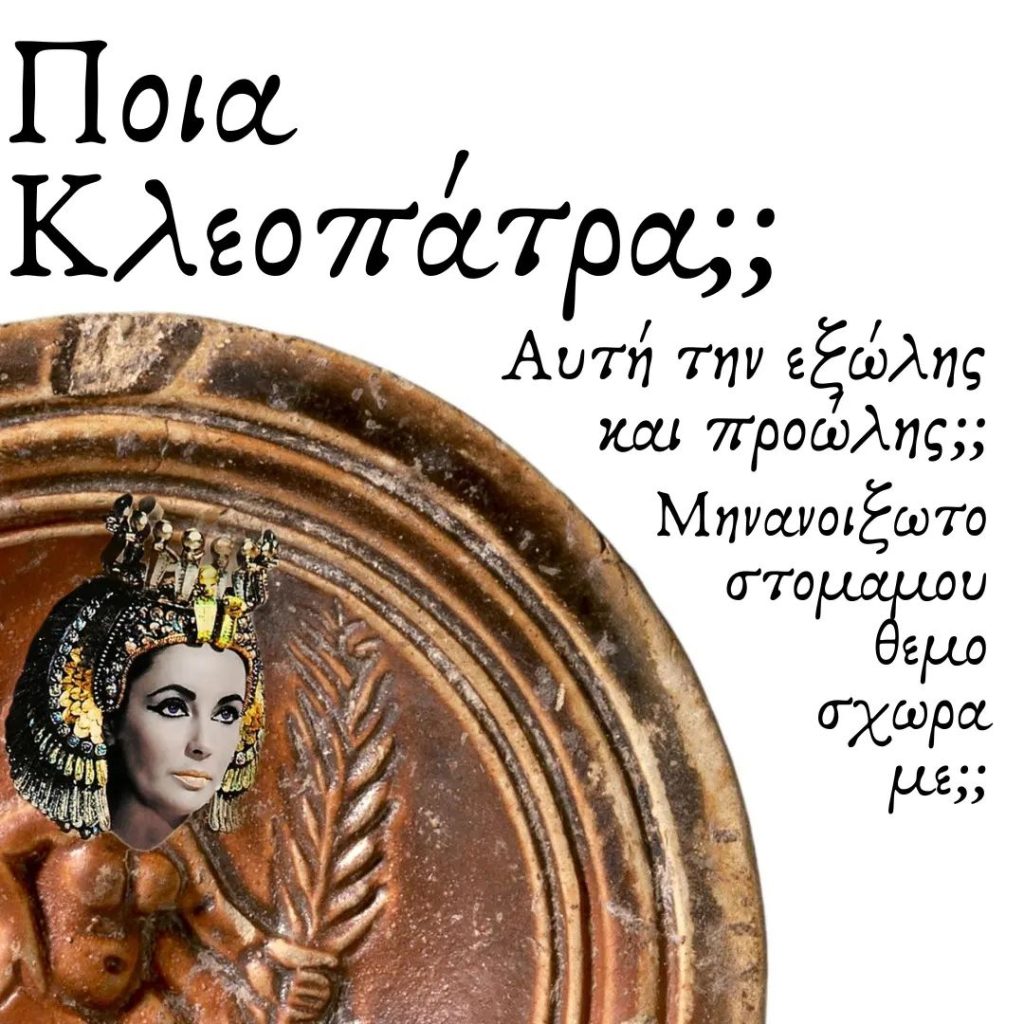
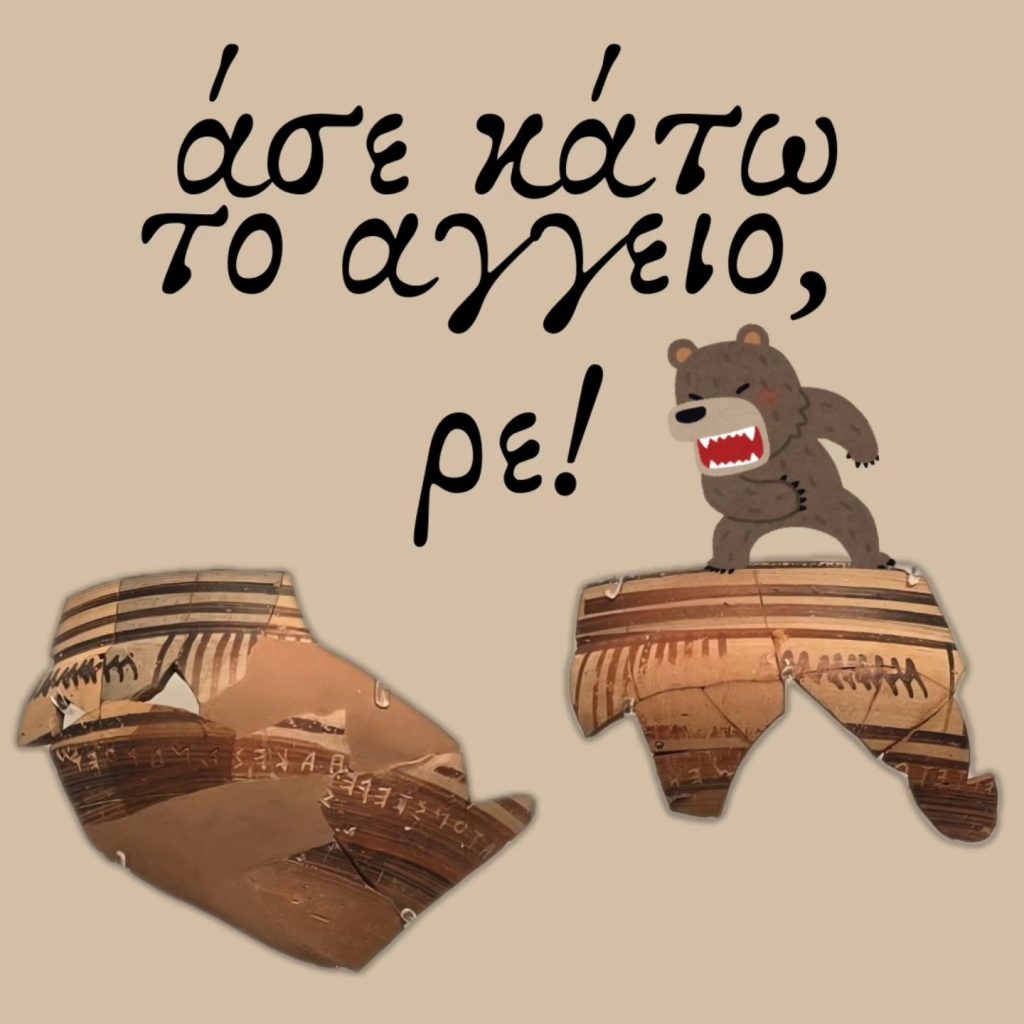
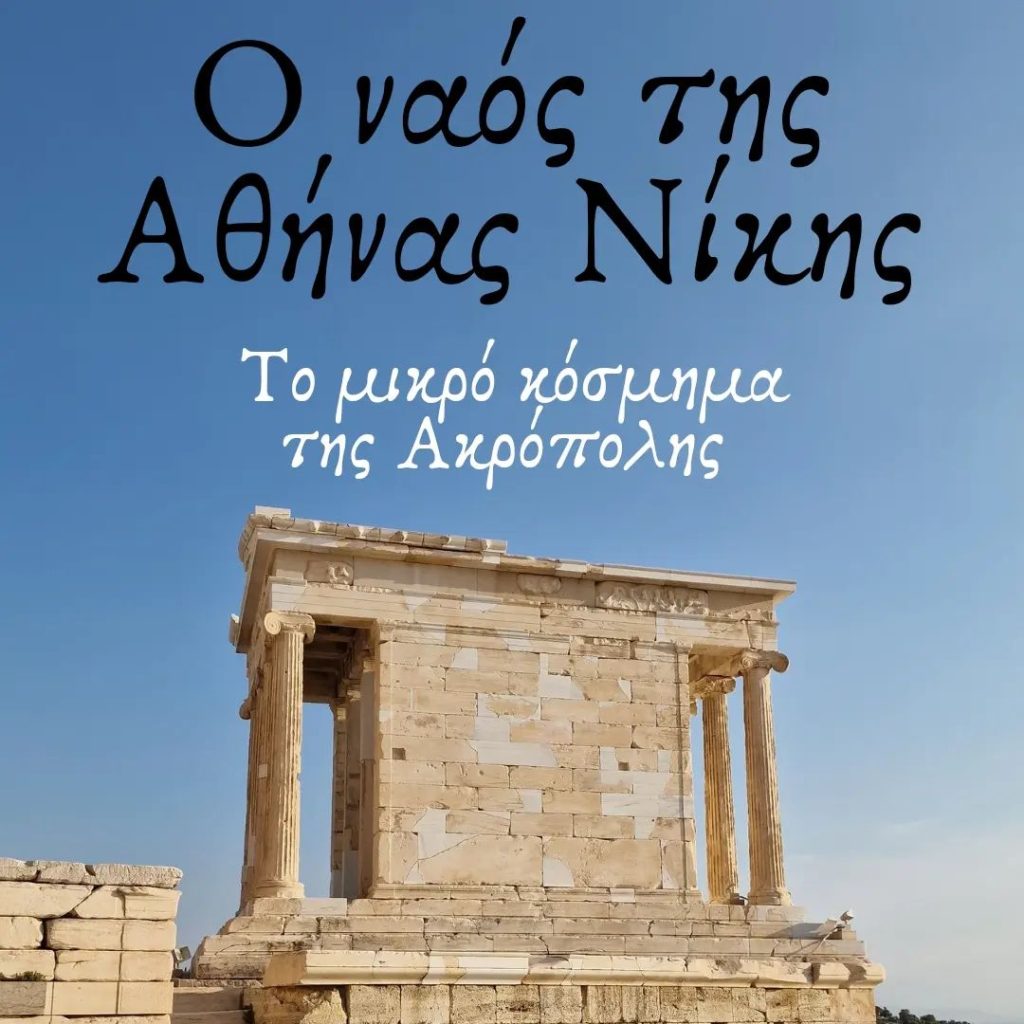
Recently Indy has been accused of racism against indigenous people and generally being a negative role model. Many colleagues tell you that his films made them want to become archaeologists. Did they affect you? How do you think he would defend himself and what would he say about archeology today?
Many of my colleagues really wanted to become archaeologists because they saw Indi as children. Then they could not know that Indi is not an archaeologist. And if he was, even once, it was in an era and in a way that is completely outdated.
The archaeologist is not a treasure hunter. Indiana Jones would defend himself, as everyone does for everything. Even a racist would defend himself considering that he is right to be a racist. But Indy wasn’t one, he was a pure treasure hunter.
A good archaeologist chases knowledge and information. Information is everywhere and not only in the findings, which if you take them out of their context and ignore it, you lose a lot of information. I and many others in Greece were not influenced by Indiana, but by the fact that we live in a country full of monuments of ancient heritage.
You have shot down many stereotypes describing archaeologists, like the idea that they spend their life doing excavations in exotic places or that they only work in museums and universities.
Are you an unconventional archaeologist or do we just not know what archaeologists are truly like?
Most people don’t know what archaeologists do. Archaeologists study the human past through its remains. Obviously, a very large part of our work is excavation.
But that’s not all. And of course we don’t dig to discover findings. We dig in to answer questions. And the most important find of all is soil, because the layers of soil that covered people, from ancient times until now, contains most of the necessary information! It tells us when something was buried, about the time it was buried, It evens tells us about what they ate, how they lived, what plants people had then (the detailed analysis with microscopes nowadays reveals a lot).
You say that “The study of the past is our collective pan-human memory, like a giant psychotherapy session.” Can you explain this to us?
Archeology investigates mankind. Through archeology we discover the variety and breadth of human existence, we become better. Example; At one time humanity came to be able to create from nothing, concepts such as Democracy and Philosophy, or the arts and sciences. This empowers us for what we are capable of doing. Another example? We no longer have slaves as they did in ancient times, because we have become better. We must remember it so we don’t experience it again.
Also, we have now developed medicine and we do not die from a tooth decay, as in ancient times.
Einstein sticks his tongue and perhaps the greatest archaeologist ever (as you have said), V. Gordon Childe, has been photographed with a teddy bear. Does that make them eligible to be part of pop-science?
Makes them look secure and confident in themselves. Humanity must be able to identify its complexes, its obsessions, its superstitions, its stereotypes, and solve them! To move forward and become better.
On Netflix, in the movie “The dig “, we see the true story of the priceless discovery of a shipwreck from the Anglo-Saxon period. Today it is in the British Museum, which at the time was mainly interested stealing the glory from the hands of the discoverer, who was later vindicated. Is Archaeologists vs Museums a common conflict?
No, the film has a large percentage of imaginary elements and is not entirely based on historical data, it is simply inspired. Something that is true, of course, is that at that time there were also amateur archaeologists, while the official archaeologists were more high-minded and snobs. Things have changed a lot. Back then in Britain, archeology was only (or mostly) done as a hobby by the very rich.
The poorest people had to work. They had no opportunity to study and engage in science. Now, sciences and studies are more accessible to all people. And that is good for the sciences too. We also now know that amateur archaeologists sometimes did good to science with a discovery, but much more often they did harm because they did not know what to look for and how to keep track of important findings.
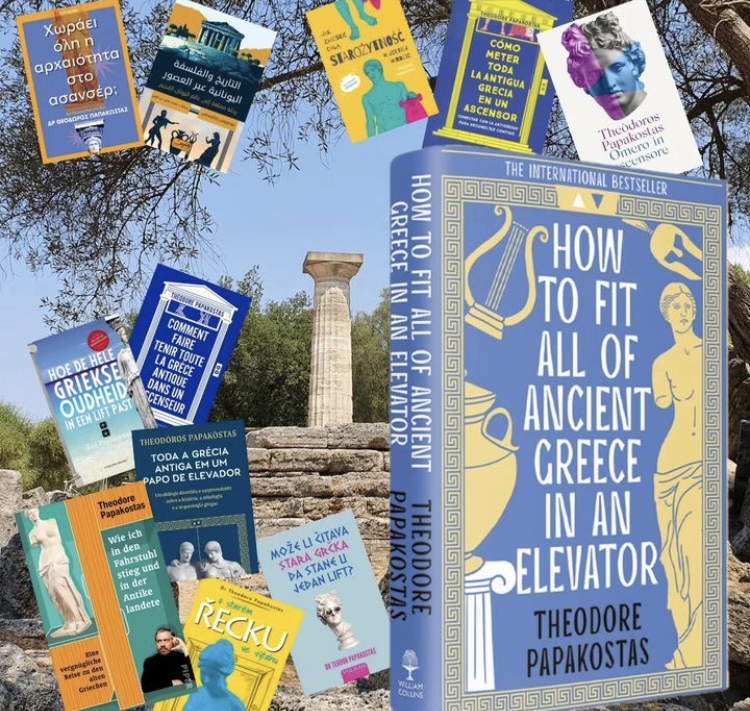
In your book “Does all archaeology fit in the elevator?” (published by Key books ) you create a peculiar character . Please give us his profile as you thought it would be.
The reason I am asking this. is his question: “What are you involved in, in your life?” This alone predisposes me.
You wouldn’t call him cultured…polite.
I don’t like formalities. I created the dialogue in the book the way I talk to people, directly, comfortably and freely. If that bothers anyone, I just prefer to respect that and walk away.
But I believe in direct communication and I don’t consider it rude.
What do you think that could take the place of the 12 gods in today’s world?
Money. Money has always been at the core of religions because money since it was discovered gives power to those who own it.
Do you like Asterix and what do you think Goscinny / Uderzo achieved with their work?
Yes, I like it and have liked it since I was a child. I’m still crazy about the ninth art (comics) and like all comics. Asterix does what all art forms do: They make our lives more fun and therefore more beautiful.
What is your Holy Grail? If it exists, I suspect it has nothing to do with archeology, or does it?
I don’t believe in holy grails. And science cannot have sanctities and sanctities.
Science must wonder, question, search, seek and open new paths.
If the Ministry of Education proposed to you to create history books, would you say yes, or no?
Alone? probably not. I’m not enough anyway. But I would like to contribute. Of course, I would like to present a more human and global side of history and unfortunately, we still have some conservative circles in Greek society who are reacting against such approaches. I hope conservatism does not prevail.
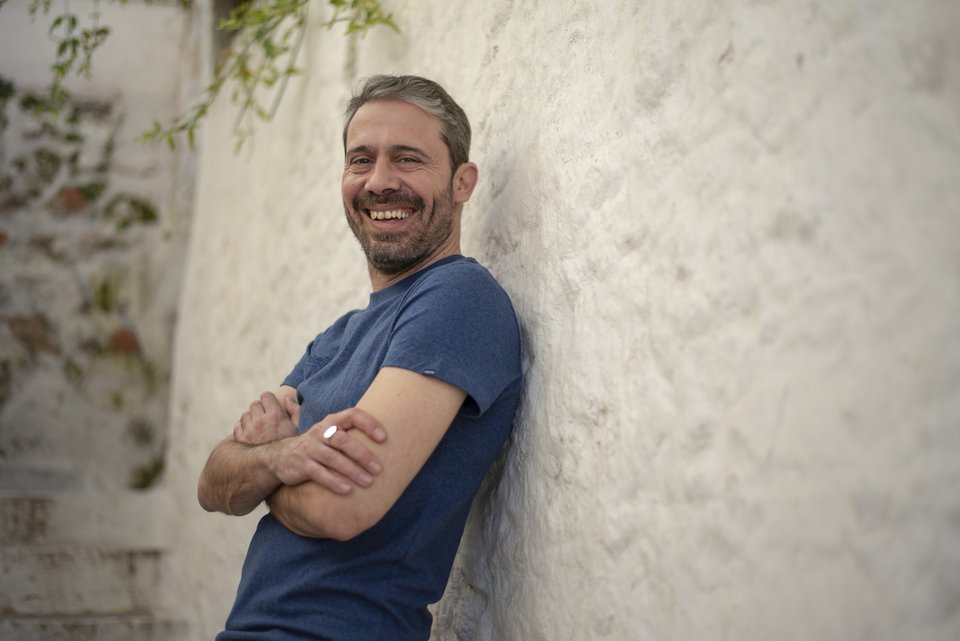
Children need the myth. But since when do you think they can read parts of history without such interventions?
In middle school yes, and in high school for sure. First, I disagree with putting so much emphasis on myth (and mythology – Greek mythology is fine, although you learn it half-heartedly, but human history and culture are more significant). I find that children are more capable of hearing the truth than we think. High school students are cerebrally developed and capable of understanding everything. We cannot treat them either as idiots or as immature.
E. Gombrich, completed the amazing “The little history of the world” by first reciting it to his wife (1936 podcast). Our national photographer, Nelly’s , at the Greek stand of the NY exhibition, created with her photographs a collage of statues (IG from 1936). We see the development of these ideas in your work. In the future what do you dream of happening?
I dream that we stop seeing our heritage as something distant, untouched, sacred and remote, and bring it close to us and get to know it.
To make it a part of our lives and to be able to be inspired and have fun with it, but also rely on this knowledge to finally manage to create something new that will be admired by the generations to come.
